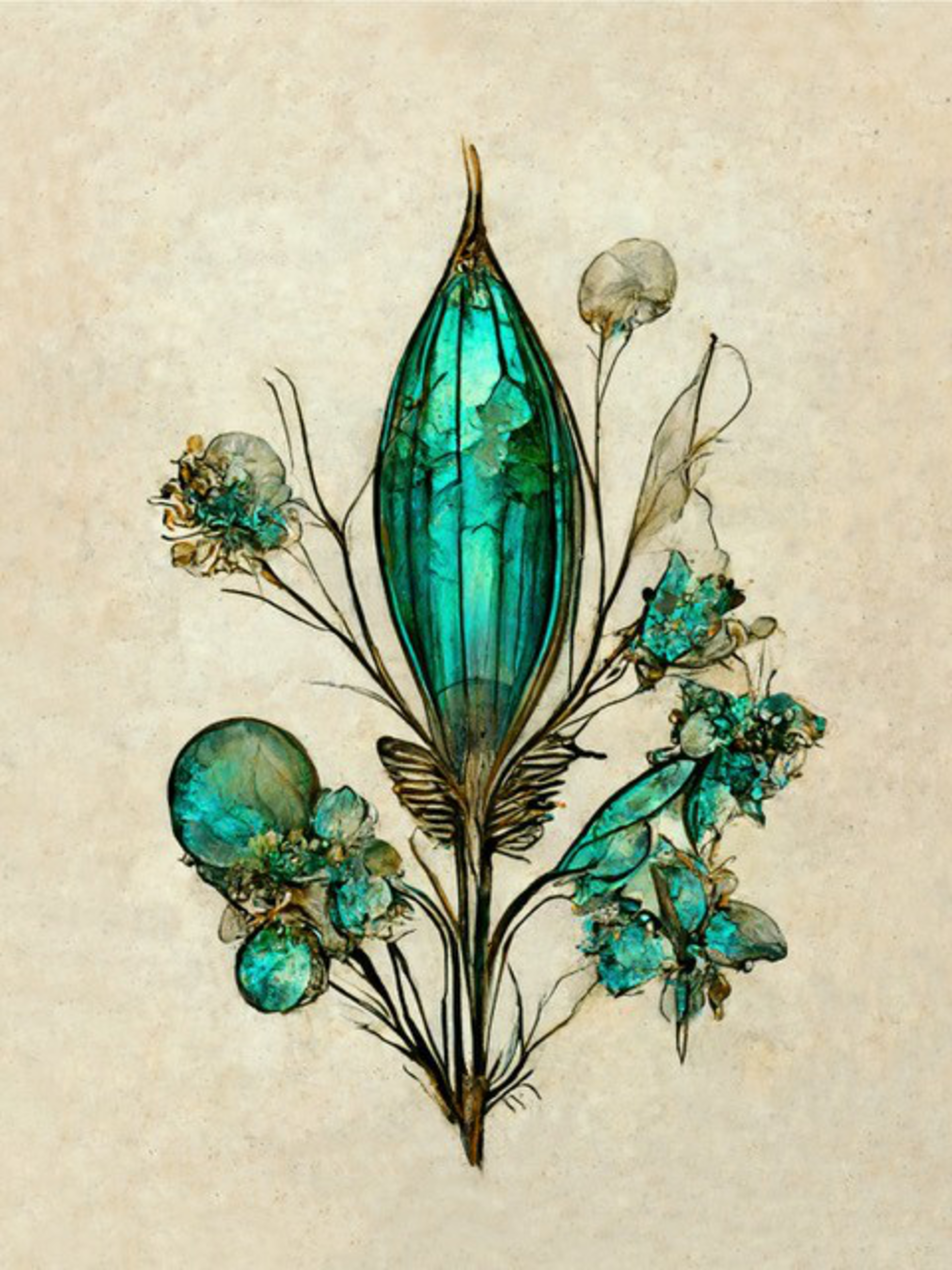San Franciscans went crazy for plants during the pandemic. And now you could say a similar passion for flora has crossed over into the virtual world, with NFT flower shops suddenly popping up everywhere.
You can catch the botanical bug for virtual blooms at Oakland gallery Mercury 20, where artist Andrea Brewster’s archival giclée prints of AI-generated flowers are now on display.
Brewster is an expert in “hyperbolic” or three-dimensional tatting (opens in new tab), but was eager to experiment with artificial intelligence and flowers in her artwork after learning that two of her forefathers were both budding naturalists during the 19th century.
The result is a collection of whimsical floral images (opens in new tab) made through Brewster’s interactions with the AI image generator Midjourney (opens in new tab). She calls them Improbable Blossoms.

Brewster is not alone in taking to this new frontier for a subject matter that’s been a recurring motif since chiaroscuro still lifes. Last year, a San Francisco-based NFT artist sold one of his works, a depiction of flowers encased in a scintillating square, for $3,900 (opens in new tab), almost as much as a coveted monstera plant. Earlier this year, famed Japanese artist Takashi Murakami debuted a collection of NFTs (opens in new tab) featuring his signature blossoms in pixelated form. Even the decidedly mainstream 1-800-Flowers got into the act, giving away floral-inspired NFTs (opens in new tab) for Mother’s Day. Then this past summer, renegade Japanese botanical artist Azuma Makato launched Meta Florist (opens in new tab), a virtual flower shop where you can buy NFT bouquets (opens in new tab).
You may have seen some mysterious signage for the brand in SoMa more recently, and if you’ve ever been to Verse: The Art of the Future, now at the Palace of Fine Arts, you may have seen a sprouting Avatree intended to fight climate change. Clearly, the pandemic-plant obsession may have some life in it yet.
To produce her images, Brewster typed in strings of words that related to botanical illustration, and the AI scraped a dataset of 5 billion images to create an illustration based on those text prompts. Sometimes, a stray pencil or blurb of text randomly appeared, but for the most part Brewster was pleased with the outcomes. From there, she combed through hundreds of images to narrow down her selection to display to 10, focusing on images that had a delicate quality such as petals with dragonfly-like wings to underline the fragility of the natural world.
By experimenting with AI, Brewster feels like a next-generation explorer, much like the female botanical artists of centuries past (opens in new tab) whose drawings documented the natural world and gave new scientific and artistic meaning to it. Even as the specter of plagiarism haunts the AI-generated art world, Brewster is approaching the medium with tempered optimism.
“There’s a kind of sense of adventure and something new and amazing and magical,” Brewster said. “And to me, the AI has that same kind of quality. Like, we’re on the precipice of [a] brave new world, and it’s amazing and frightening.”
‘Improbable Blossoms’ at Mercury 20
📅Through Jan. 28, 2023
📍475 25th St., Oakland
🔗mercurytwenty.com (opens in new tab)
